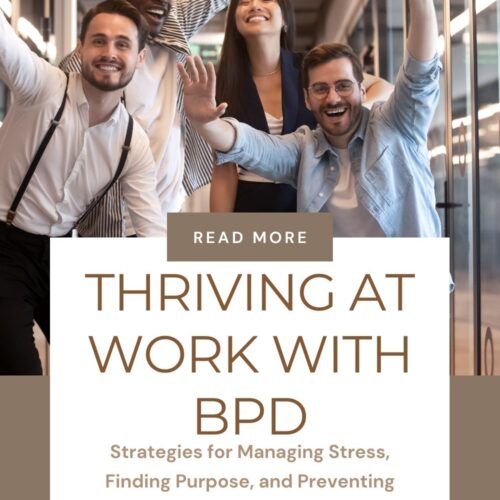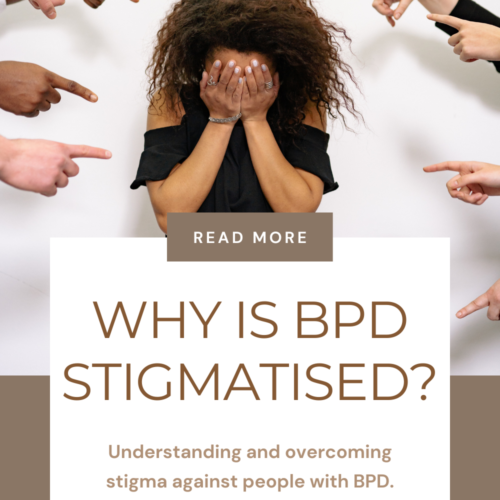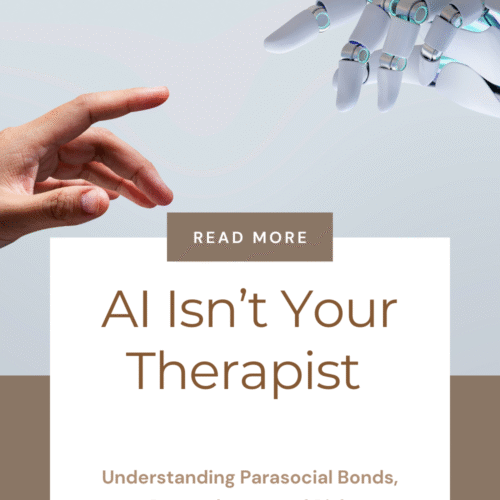I often find myself stuck in a quiet tug-of-war: is a Borderline Personality Disorder diagnosis helpful, or does it end up causing more harm than good? Some days it feels like a lifeline, a name for the chaos inside me. Other days, it feels like a label that invites dismissal rather than understanding.
Recently, I came across the concept of epistemic injustice, and something clicked. It gave shape to an experience I’ve carried for years but never had the words for.
Living with BPD is often described as being on an emotional rollercoaster, but what happens when no one believes you’re even on the ride? When your pain is questioned, your insight doubted, your truth brushed aside? That’s epistemic injustice: the quiet violence of not being trusted to know your own life. It deepens stigma, complicates healing, and can leave you feeling even more isolated in your search for support.
What is Epistemic Injustice?
Coined by philosopher Miranda Fricker, epistemic injustice describes the harm done when someone’s ability to share knowledge (especially about their own experience) is dismissed due to prejudice or systemic inequality. There are two main types:
- Testimonial Injustice is when your voice is discredited due to bias.
- Hermeneutical Injustice. This occurs when you don’t have the words or frameworks to understand or explain what’s happening to you.
Testimonial Injustice: “You’re Just Being Borderline”
Once diagnosed with BPD, people are often seen as unreliable narrators of their own experience. Their pain is medicalized, pathologized, or even dismissed as manipulation.
“You’re overreacting.”
“You’re only saying that to get attention.”
“You’re just splitting again.”
I hear these often in clinical settings, but they are not clinical observations, they’re acts of epistemic injustice. They strip people with BPD of the right to be believed. Even when expressing clear, thoughtful insights, they may be met with suspicion or scepticism, particularly in medical or therapeutic settings.
Hermeneutical Injustice: No Language for the Pain
Before even receiving a diagnosis, many people with BPD experience a profound sense of confusion. Why are relationships so intense? Why does abandonment feel like death? Why do emotional wounds cut so deep? If society doesn’t provide the words (or worse, shames you for needing them) you’re left stranded in your own experience. The system hasn’t given you the tools to understand or explain your reality. You feel broken, when in fact you’re just unsupported.
The Double Bind of Diagnosis
Even after receiving a label, epistemic injustice doesn’t stop. In fact, it can get worse. You’re seen as an unreliable source for your own experiences as they are filtered through a personality disorder lens. Expressions of emotion are medicalized and pathologized instead of empathized with.
- If you lack insight, you’re “unstable.”
- If you show insight, you’re “manipulative.”
This impossible bind traps people with BPD in a cycle of being doubted, misunderstood, and emotionally invalidated, especially in systems that claim to help.
Reclaiming Epistemic Agency
Despite these challenges, people with BPD often develop remarkable insight into their emotional world. They become trauma-literate, relationally intuitive, and deeply self-aware.
Reclaiming epistemic agency means:
- Validating your own inner wisdom
- Learning the language of trauma and emotional sensitivity
- Connecting with others who get it
- Refusing to be silenced by stereotypes
We’re not “too much.” We’re not “unreliable.” We are witnesses to our own pain, and we deserve to be heard. If you live with BPD and feel like your truth is always being questioned, you’re not alone. There’s nothing disordered about wanting to be seen, heard, and understood. Recognising epistemic injustice is the first step toward healing, advocacy, and reclaiming your narrative.


